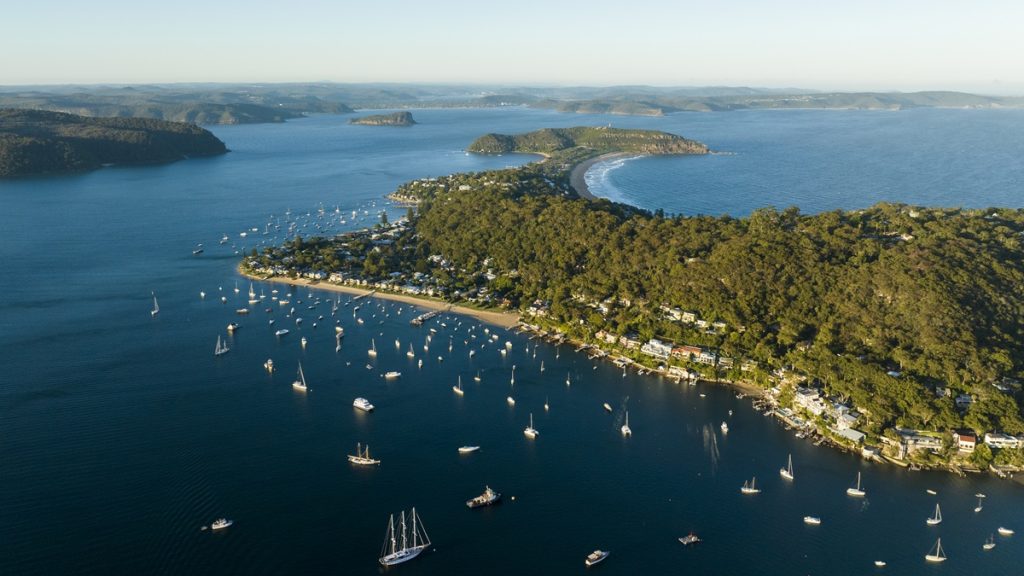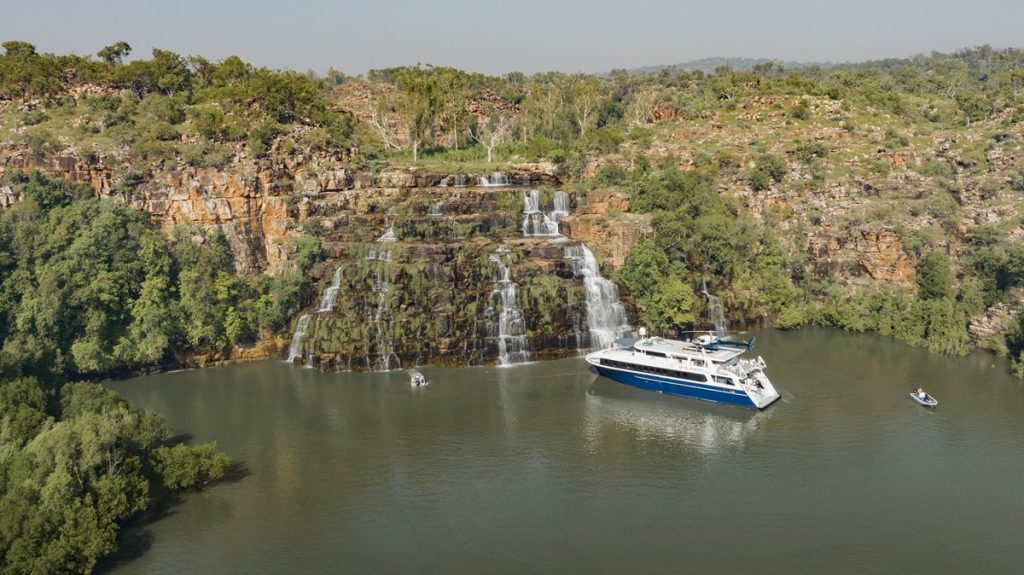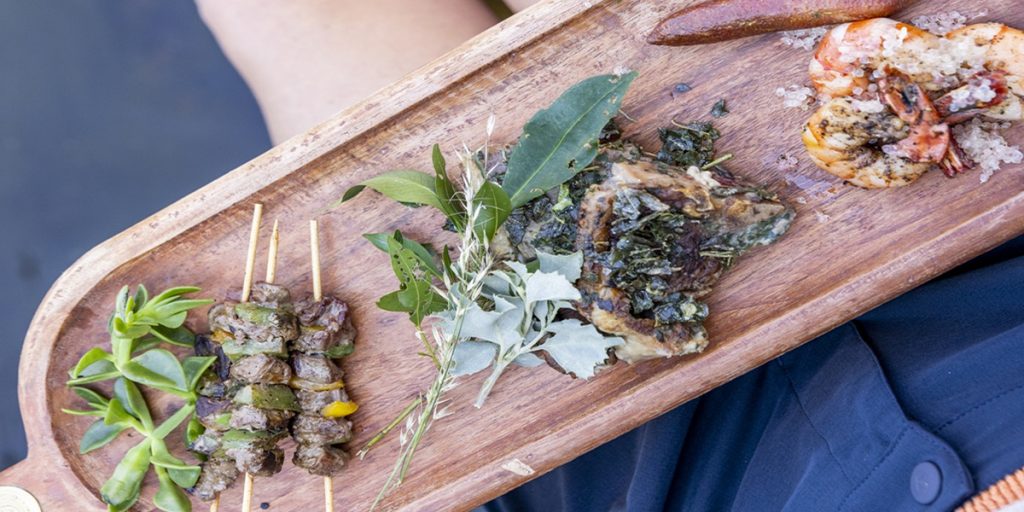The Kimberley region, covering over 400,000 square kilometres, is a vast and sparsely populated area that offers a unique blend of natural beauty and rugged landscapes.
While parts of this expansive region have been developed for cattle farming, much of the Kimberley, especially its remote northern coastline, remains largely untouched. This unspoiled territory showcases a diverse range of landscapes and ecosystems, making it a haven for those seeking to experience the authentic and wild heart of Australia.
What kind of Kimberley wildlife will you see? Read on to find out.
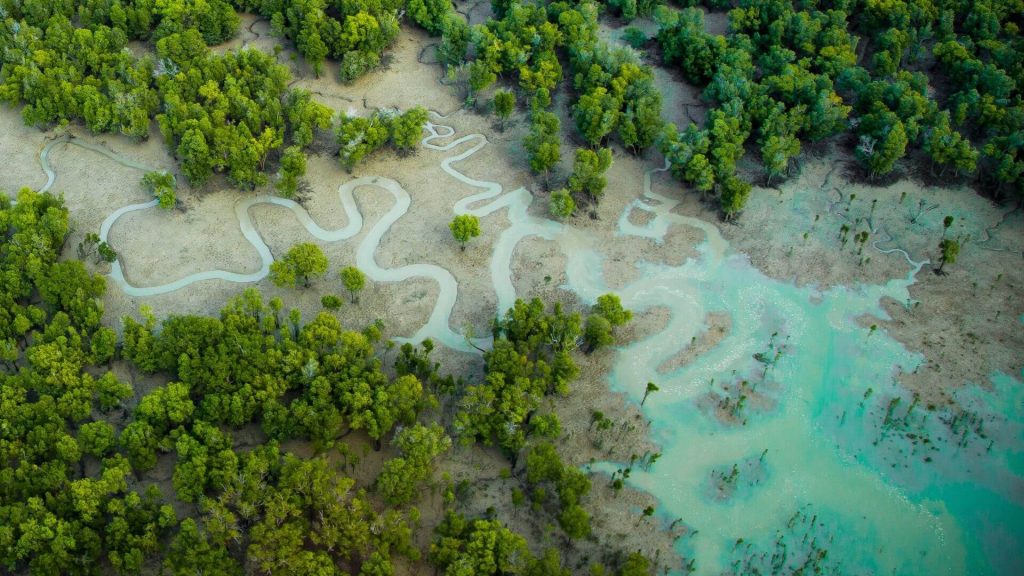
Mammals
Dingo
In the Kimberley, dingoes are seen as a vital component of the natural environment and play an important role in controlling populations of smaller animals and maintaining ecological balance. They are typically shy and elusive, making sightings a special event.
Wallabies
Interestingly, kangaroos are not overly common in the Kimberley. There are no red or grey kangaroos but we do see lots of wallabies – in fact, nine species of wallaby can be found. These include the Agile wallaby, often seen bounding across the landscape, and the Antilopine wallaby.
You may also be lucky enough to see a Monjon, a small rock wallaby that can only be found in the rocky crevices of the Kimberley.
Small marsupials
The Kimberley is home to a range of small, often nocturnal marsupials. This group includes:
- Bandicoots: these small, nocturnal marsupials have pointed snouts and humped backs, known for their rapid, hopping movements.
- Quolls: these are carnivorous marsupials that resemble small cats with spotted fur.
- Dunnarts: tiny, mouse-like marsupials found primarily in Australia. They have slender bodies, pointed snouts, and large ears. These nocturnal creatures are mostly insectivorous and known for their solitary, elusive nature.
- Bilbies: often known as rabbit-bandicoots, bilbies are characterised by their long, silky blue-grey fur, large ears, and long, pointed snout. They are nocturnal, burrowing marsupials, and feed on insects, seeds, and fungi.
- Echidnas: unique, spiny anteaters and one of the only two egg-laying mammals (monotremes) in the world, echidnas have a distinctive appearance with a spiny coat, a snout used for both breathing and eating, and a specialised tongue for catching insects.
Scaly-tailed possum
The Scaly-tailed possum, known as ‘yilangal‘ by the Wunambal people of the Mitchell Plateau, is a remarkable and secretive nocturnal marsupial found exclusively in the Kimberley’s rocky landscapes. Distinguished by its largely hairless, prehensile tail covered in rasp-like scales, this possum uses its unique tail to grasp branches, helping it move around with ease.
Usually a solitary animal, the Scaly-tailed possum feeds on a variety of plant materials, including fruits, leaves, seeds, flowers, and occasionally insects. Due to its reclusive nature and preference for sheltering in rock crevices, sightings are quite rare.
Fruit bats
Flying foxes are another iconic Kimberley species! Also known as fruit bats, they are the largest of all bats. But it’s not just their size that makes them hard to miss. They are extremely social animals and a fruit bat colony can easily number in the thousands. They are also pretty noisy! A visit to a big fruit bat colony is not something you will forget in a hurry.
You’ll likely see them at dusk as they take to the sky in search of ripe fruits and nectar, playing a crucial role in the ecosystem by pollinating flowers and dispersing seeds.
Reptiles and amphibians
Saltwater crocodile
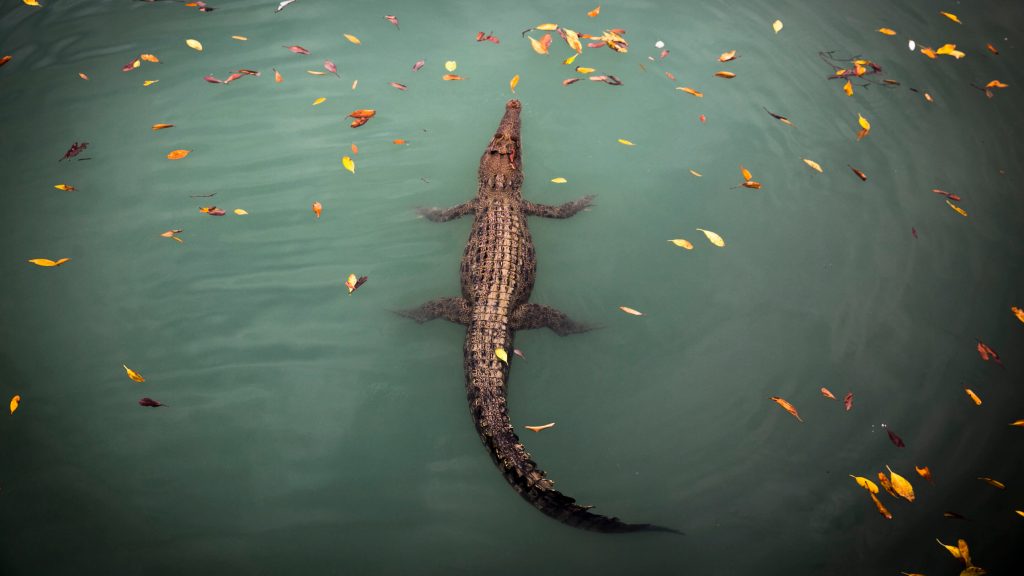
The saltwater crocodile, the Kimberley’s most infamous resident, is the world’s largest living reptile, growing up to seven metres and serving as an apex predator in its ecosystem.
While freshwater crocodiles are commonly seen in the Kimberley’s water bodies, saltwater crocs are more elusive and cautious, preferring estuarine environments.
Sightings are frequent from the TRUE NORTH, though, where these ancient creatures may be spotted lounging on riverbanks or swimming near the boat. But more often than not – they just ‘appear.’ Far enough away to support their repute for having outlived the dinosaurs but close enough to make you appreciate the TRUE NORTH’s rigid-hulled tenders.
Lizards
You’ll find an abundance of lizards across the Kimberley, including:
- Blue Tongue Lizards: common in the Kimberley, especially in moist, leaf-littered areas, Blye Tongue Lizards are part of the skink family. They’re known for their blue tongues, which they display as a defence mechanism. As omnivores, they consume insects, flowers, and fruits. Their adaptability to different environments makes them a resilient species across many landscapes in the Kimberley region.
- Goannas/Monitor Lizards: goannas and monitor lizards cover a range of species, each with distinct traits. The Gould’s or Sand Goanna is a large, robust lizard adapted to the Kimberley’s arid, sandy regions, known for its excellent smell and burrowing skills. In contrast, the Mitchell’s Water Monitor thrives in aquatic settings, skilled in swimming and often found near rivers and lakes. These lizards are versatile hunters, preying on small animals and insects.
- Frilled Lizards: the Frilled Lizard is known for its striking neck frill, used in both defence and courtship. A tree-dwelling reptile, its colours offer great camouflage in treetops, and it can also move swiftly on the ground.
Kimberley snakes
The Kimberley region is home to a wide array of snake species, ranging from the venomous King Brown or Mulga Snake to non-venomous pythons like the Olive Python, Black-Headed Rock Python, Children’s Python, and Common Tree Snake.
Each species has adapted to the region’s diverse habitats, from arid landscapes to dense forests. The King Brown, for instance, is known for its potent venom and is respected by locals and visitors alike.
The rough-scaled python is one of the most exciting snakes you can see in the Kimberley due to its rare nature – in fact, it has the smallest distribution of any snake in Australia. It’s known for its unique, keeled scales and can grow up to two metres in length.
Marine life
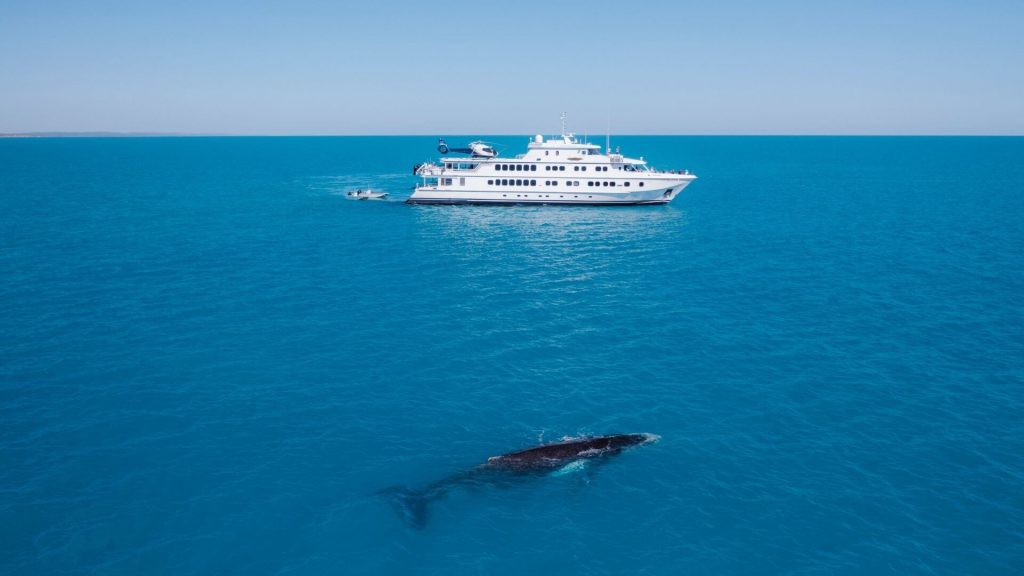
We’re lucky to see some incredible marine life aboard the TRUE NORTH, including:
- Fish species, ranging from small reef fish to larger pelagic species. These include barramundi, mangrove jack, and queenfish.
- Coral reefs, including fringing and patch reefs. These vibrant ecosystems are home to a multitude of coral species, providing a habitat for a diverse range of marine life.
- Marine mammals like bottlenose dolphins and humpback dolphins. You may also see humpback whales during mating season.
- Turtles, including the flatback, green, and hawksbill.
- Sharks and rays, including reef sharks and the occasional bull shark. Rays, including manta rays and stingrays, are also prevalent.
- Invertebrates, including molluscs, crustaceans, and echinoderms.
Birds
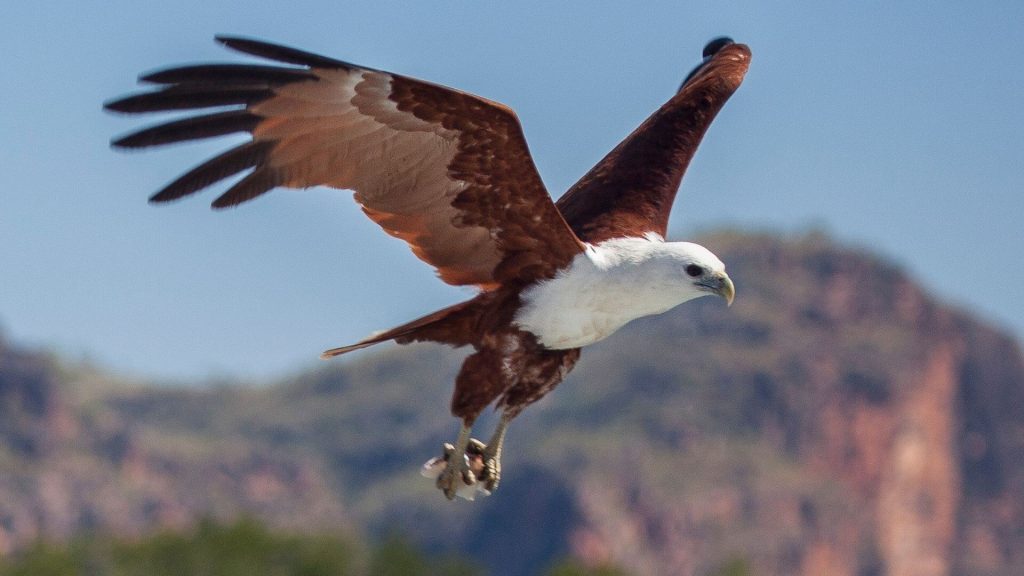
Bird enthusiasts love their voyage through the Kimberley, because it’s so rife with stunning bird life.
- Parrots and Cockatoos: Including Red-winged Parrots, Rainbow Lorikeets, Pink Galahs, Northern Rosellas, Sulphur-crested Cockatoos, and Black Cockatoos (both red-tailed and yellow-tailed).
- Large Birds: Such as the Jabiru (Australia’s only stork) and Brolgas.
- Water Birds: Including herons, egrets, ibises, bitterns, geese, and ducks like Magpie Geese and Whistling Ducks.
- Other Birds: Rainbow Bee-eaters, Great Bowerbirds, Silver-crowned Babblers, Blue-winged Kookaburras, Pied Butcherbirds, the migratory Sacred Kingfisher, and Spinifex Pigeons. The Kimberley is also home to all Australian species of birds of prey.
- Black Grasswren (Amytornis housei): A small, elusive bird found amongst the large sandstone boulders and spinifex grasses of Kimberley’s northwest.
See it all for yourself
Discover the wild heart of Australia with TRUE NORTH. Explore our Kimberley cruise itineraries and immerse yourself in a virtually untouched region full of spectacular wildlife, from the elusive dingoes to the majestic saltwater crocs to the unique birdlife that fills the skies.
Book your Kimberley cruise today!
Peter Trembath was True North’s inaugural general manager.
